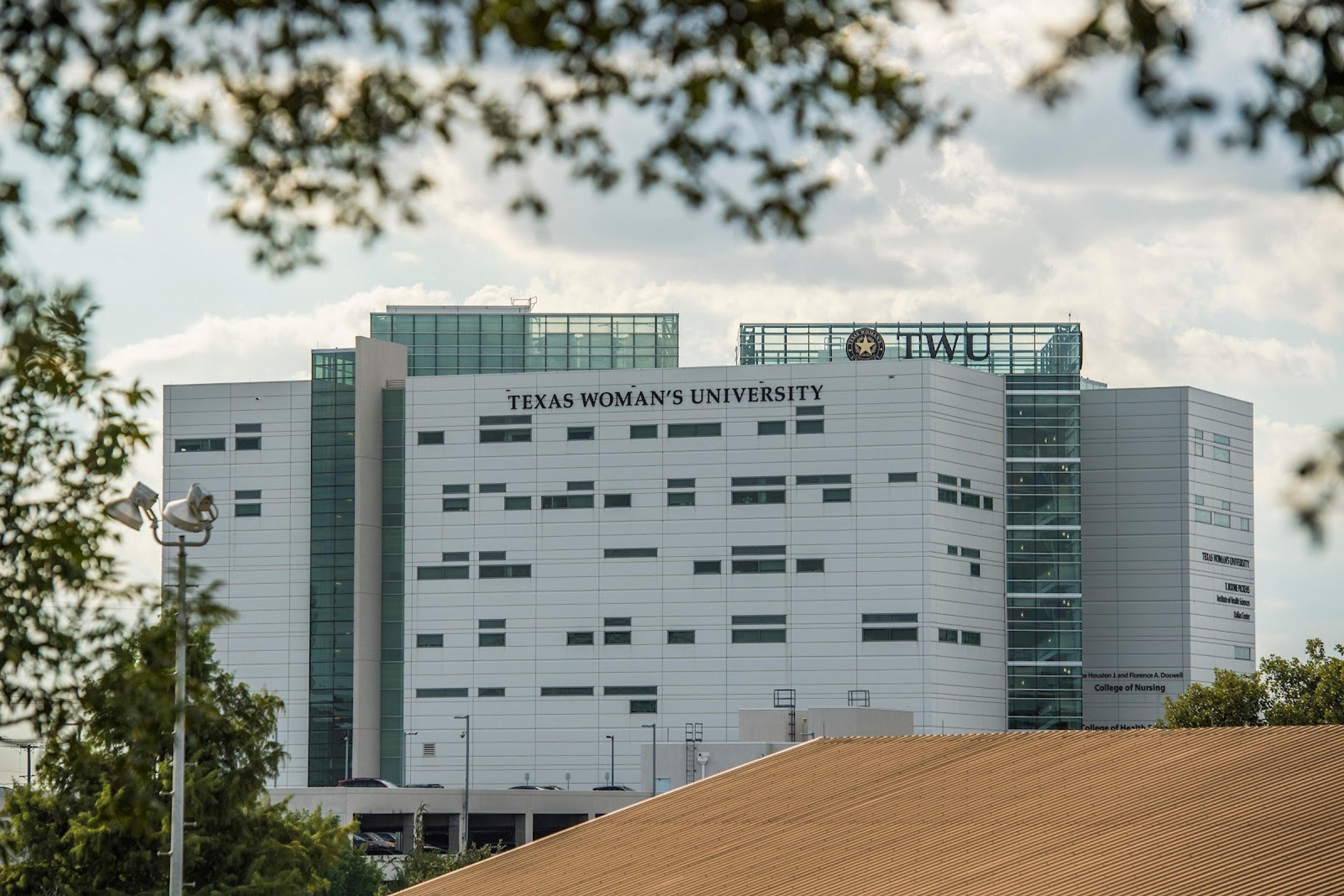Top 10 Nursing Schools in Texas (2025)
Discover the top 10 nursing schools in Texas for 2025. Compare programs, tuition, and career paths to find the best nursing education for your goals.
Posted July 24, 2025

Join a free event
Learn from top coaches and industry experts in live, interactive sessions you can join for free.
Table of Contents
Nursing is one of the most in-demand careers in Texas, with growing opportunities in hospitals, clinics, and specialized care facilities. Choosing the right nursing school in Texas can shape your nursing career, providing the education, clinical training, and professional network needed to succeed.
This guide ranks the top 10 nursing schools in Texas based on academic excellence, nursing program offerings, clinical training, and graduate outcomes. Whether you're a nursing student seeking a baccalaureate degree program or a professional looking to advance with a master's degree or doctor of nursing practice, this list will help you find the best programs in the state.
Top 10 Nursing Schools in Texas

1. University of Texas at Austin – School of Nursing
- Programs: BSN program, master’s degree, doctor of nursing practice (DNP)
- Focus Areas: Patient safety, compassionate care, leadership roles
- Tuition & Fees (Doctorate): Full-time: $12,427 per year (in-state) and $22,713 per year (out-of-state)
The University of Texas at Austin offers a highly respected nursing program that combines rigorous academics with hands-on real-world experience. The BSN program prepares students for nursing practice, while the DNP and master’s degree programs focus on advanced practice and leadership roles in healthcare settings.

2. University of Texas Health Science Center at Houston (Cizik School of Nursing)
- Programs: BSN program, master’s degree, post-masters certificate
- Focus Areas: Community health, nursing practice, health care innovation
- Tuition & Fees (Doctorate): Full-time: $8,568 per year (in-state) and $27,936 per year (out-of-state)
Located in the Texas Medical Center, the Cizik School of Nursing offers extensive real-world experience through partnerships with top hospitals. The BSN program prepares students for registered nurses licensure, and graduate programs support advanced practice roles.

3. Texas Woman’s University – College of Nursing
- Programs: Undergraduate programs, master’s degree, DNP
- Focus Areas: Compassionate care, nursing leadership, nursing education
- Tuition & Fees (Doctorate): Full-time: $383 per credit
TWU has one of the largest nursing programs in Texas, offering undergraduate, graduate, and doctoral degrees focusing on patient safety, community health, and leadership roles. With campuses in Denton, Dallas, and Houston, TWU provides real-world experience in top healthcare settings, preparing students for careers as registered nurses and advanced practice professionals.

4. University of Texas at Arlington – College of Nursing and Health Innovation
- Programs: Traditional BSN, RN-to-BSN, accelerated track
- Focus Areas: Health care, leadership roles, science
- Tuition & Fees (Doctorate): Full-time: $7,036 per year (in-state) and $16,836 per year (out-of-state)
Known for its flexible nursing education, offering both online and in-person programs to accommodate diverse student needs. The BSN program includes traditional and accelerated track options, making it an excellent choice for professionals transitioning into the nursing field. With strong clinical partnerships in healthcare settings.

5. Texas A&M University – College of Nursing
- Programs Offered: BSN, Master’s Degree, post-masters Certificate, DNP
- Key Focus Areas: Nursing career development, patient care, community health
- Tuition & Fees (Doctorate): Full-time: $3,848 per year (in-state) and $7,648 per year (out-of-state)
Texas A&M’s nursing program offers strong training for both registered nurses and advanced healthcare professionals. The program provides opportunities for real-world experience in healthcare settings, preparing students for roles in nursing practice, nursing education, and leadership positions.

6. The University of Texas at El Paso School of Nursing
- Programs Offered: Master’s degree in nursing
- Key Focus Areas: Nursing practice, patient safety, healthcare leadership
- Tuition & Fees (Doctorate): Full-time: $3,848 per year (in-state) and $7,648 per year (out-of-state)
UTEP School of Nursing offers a master’s degree in nursing designed to prepare students for advanced practice, leadership roles, and specialized nursing practice in diverse healthcare settings. The program emphasizes patient safety, evidence-based care, and hands-on training to ensure graduates are equipped to meet the evolving demands of the nursing field.

7. University of Texas at Tyler – School of Nursing
- Programs Offered: BSN, RN-to-BSN, Graduate Programs
- Key Focus Areas: Health, patients, nursing leadership
- Tuition: $47,502
UT Tyler provides strong undergraduate and graduate programs, focusing on nursing leadership and patient-centered care. The school offers both traditional BSN programs and online options, preparing students for registered nurse roles and advanced practice careers.

8. University of the Incarnate Word – School of Nursing and Health Professions
- Programs Offered: Baccalaureate degree program, master’s degree, Doctor of Nursing Practice (DNP)
- Key Focus Areas: Patient care, science, health
- Tuition & Fees (Doctorate): Full-time: $1,100 per credit
The School of Nursing and Health Professions at the University of the Incarnate Word focuses on developing skilled nursing professionals through rigorous nursing education and hands-on training. The program emphasizes compassionate care, patient safety, and evidence-based practice in healthcare settings. With degree options ranging from undergraduate programs to advanced graduate programs.
9. West Texas A&M University – Department of Nursing
- Programs Offered: BSN, Master’s Degree, DNP
- Key Focus Areas: Health care settings, compassionate care, patient safety
- Tuition & Fees (Doctorate): Full-time: $3,848 per year (in-state) and $7,648 per year (out-of-state)
West Texas A&M University provides an affordable and flexible nursing program, with options for traditional BSN, accelerated track, and graduate programs, including a master's degree that prepares students for advanced practice and leadership roles. The school focuses on real-world experience, patient safety, and compassionate care, ensuring graduates are prepared for diverse nursing careers in healthcare settings.

10. Prairie View A&M University – College of Nursing
- Programs Offered: Traditional BSN, accelerated track, master’s degree
- Key Focus Areas: Nursing students, healthcare professionals, leadership roles
- Tuition: Full-time: $7,992 per credit (in-state) and $17,379 per credit (out-of-state)
Prairie provides a strong foundation in nursing education, preparing students for roles as registered nurses and healthcare professionals. The program emphasizes patient safety, compassionate care, and hands-on training in healthcare settings.
What to Look for in a Nursing Program
1. Accreditation and Reputation
Accreditation is one of the most important indicators of high-quality nursing education. The two primary accrediting bodies for nursing schools in Texas are:
- Commission on Collegiate Nursing Education (CCNE) – Accredits baccalaureate degree programs, master’s degrees, and DNP programs.
- Accreditation Commission for Education in Nursing (ACEN) – Accredits all levels of nursing education, including undergraduate programs, graduate programs, and diploma programs.
2. Clinical Experience in Health Care Settings
- Diverse Clinical Rotations: Exposure to hospitals, outpatient clinics, primary care facilities, community health centers, and specialized units (e.g., critical care, pediatrics, mental health).
- Simulation Labs: High-tech patient simulators help students practice medical procedures, critical thinking, and patient safety without real-world risks.
- Partnerships with Healthcare Institutions: Schools that collaborate with major hospitals provide access to real-world experience, networking opportunities, and potential job placements after graduation.
- Nursing programs should equip students with the skills and knowledge necessary to promote, maintain, and restore health in diverse populations.
3. Faculty and Research Opportunities
Key factors to look for in faculty:
- Clinical Experience: Instructors should have real-world backgrounds in various healthcare settings, including hospitals, clinics, and specialized care.
- Research Expertise: Schools with faculty conducting research in nursing science, patient safety, and nursing education provide students with learning opportunities beyond the classroom.
- Student Support and Mentorship: A strong faculty-student ratio ensures personalized guidance in coursework, clinical practice, and career planning.
4. Career Advancement Options
| Degree Level | Best For | Career Outcomes |
|---|---|---|
| Traditional BSN | First-time students | Prepares students for RN licensure, entry-level nursing roles |
| Accelerated Track BSN | Career changers with a non-nursing degree | Quick path to becoming an RN |
| Master’s Degree (MSN) | Nurses seeking specialization | Roles in nursing education, advanced practice, management |
| Doctor of Nursing Practice (DNP) | Advanced clinical practice | Leadership in health care, patient safety, and policy development |
| Post-Master’s Certificate | Specialization after a master’s degree | Certifications in family nurse practice, nursing education, and more |
Nursing offers multiple career paths, and the right program should align with a student’s nursing career goals. Whether entering the field as a registered nurse or advancing to specialized leadership roles, the program structure should provide flexibility and growth opportunities.
Bottom Line
Choosing the right nursing school in Texas is key to building a strong foundation in nursing practice and advancing in the healthcare field. Ensuring graduates are equipped to promote, maintain, and restore health in diverse populations. Each program offers unique strengths, from real-world experience in healthcare settings to specialized graduate programs that prepare students for leadership roles. Whether pursuing a traditional BSN, accelerated track, master’s degree, or Doctor of Nursing Practice (DNP), students should consider accreditation, tuition, faculty expertise, and clinical training opportunities. A well-chosen nursing program provides the education and hands-on experience needed for success as a registered nurse, advanced practice nurse, or health care leader.
Get Help with Your Nursing School Application
Applying to nursing school can be tough. From picking the right program to writing your personal statement and preparing for exams, expert help can make it easier.
Related Articles
For more insights into nursing education, career paths, and program selection, check out these articles:
- BSN Programs: What You Need to Know About Bachelor of Science in Nursing Programs
- Nursing Vs. Medical School: Pros, Cons, and Which One is Right for You
- Nursing School Cost – How Much is Nursing School
- Online Nursing Degrees — Comprehensive List of Programs
FAQs
How long does it take to become an RN in Texas?
- The time required to become a registered nurse (RN) in Texas depends on the type of nursing program chosen. A baccalaureate degree program (BSN program) typically takes four years to complete, while an associate degree in nursing (ADN) takes two years. Students in an accelerated track BSN program, designed for those with a prior degree, can become an RN in 12 to 18 months. Nursing programs in Texas are designed to equip students with the skills and knowledge necessary to promote, maintain, and restore health in diverse populations. After completing an approved program, students must pass the NCLEX-RN exam to obtain their nursing license.
What is the #1 nursing school in Texas?
- The top-ranked nursing school in Texas varies depending on criteria such as NCLEX-RN pass rates, faculty expertise, clinical training, and program offerings. The University of Texas at Austin – School of Nursing is consistently ranked among the best for its strong nursing education, patient safety training, and real-world experience in leading healthcare settings.
What is the fastest way to become an RN in Texas?
- The fastest path to becoming an RN in Texas is through an accelerated track BSN program or a direct-entry ADN program. Accelerated BSN programs, designed for students with a prior bachelor’s degree in another field, typically take 12 to 18 months. ADN programs, which lead to an RN license, can be completed in two years. Graduates of both programs must pass the NCLEX-RN exam to obtain their license and begin practicing as an RN in Texas.
What is a 2-year RN degree called?
- A two-year RN degree is called an Associate Degree in Nursing (ADN). This program is offered at community colleges and some universities and prepares students to take the NCLEX-RN exam to become registered nurses. While an ADN provides the necessary education for entry-level nursing positions, many employers encourage RNs to pursue a BSN program for greater career advancement and leadership opportunities.
Browse hundreds of expert coaches
Leland coaches have helped thousands of people achieve their goals. A dedicated mentor can make all the difference.




















